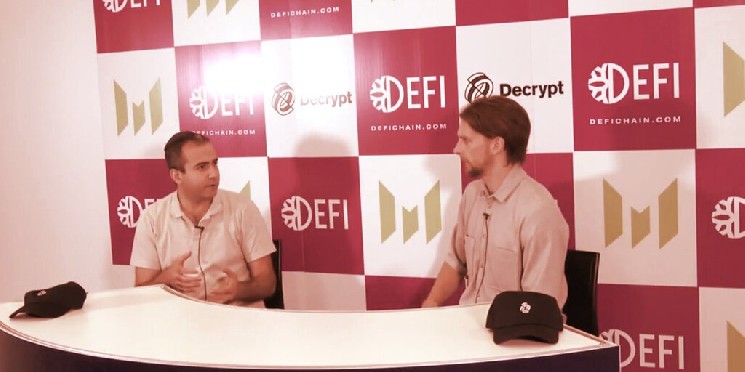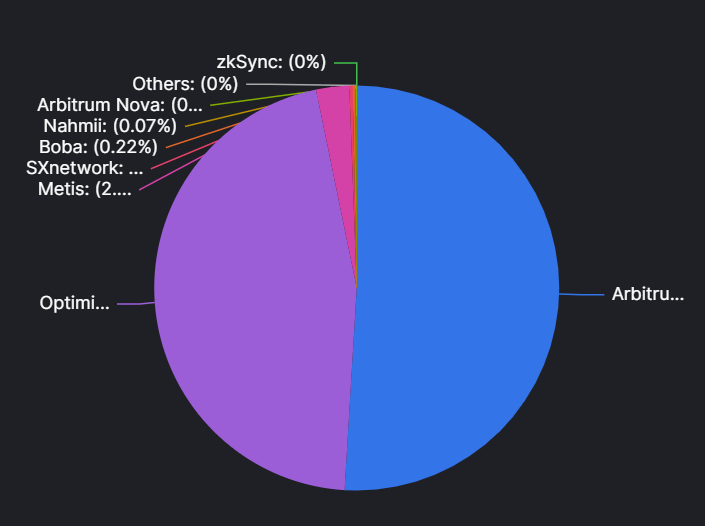Scaling Ethereum? Arbitrum Co-Founder Says Projects Should Consider 3 ‘Critical’ Points

The race to make Ethereum faster is heating up.
With Polygon rolling out new zero-knowledge technologies, StarkWare announcing a token airdrop, and NFT marketplace OpenSea integrating Optimism, there are plenty of contenders to scale the top crypto network for DeFi and NFTs.
“Ultimately, it’s a large space, and it’s a large pie,” CEO and co-founder of the layer-2 network Arbitrum Stephen Goldfeder told Decrypt at Mainnet. “There are a lot of different opportunities for different teams to experiment, basically, with different scaling technologies and different trade-offs.”
Arbitrum is one of many so-called rollup solutions which effectively move Ethereum operations off-chain to reduce congestion on the network’s mainnet. Once the activity is concluded, it’s then compressed into a single transaction on the blockchain.
Of these trade-offs, though, Goldfeder says there are three “critical” points that teams need to consider: Scalability, security, and compatibility. These scaling solutions need to be fast, reliable, and interoperable with the wider world of crypto.
But doing all three at once is the tricky bit.
“If you want it to scale the EVM [Ethereum Virtual Machine] by sacrificing security, we know how to do that. Everyone knows how to do that,” he said. “Just turn it up and make it very, very difficult to run a node but increase the capacity.”
What Goldfeder means is that as you turn up throughput, the hardware requirements for individual nodes also increase. As this rises, so too do the costs of operating and maintaining the node, nudging out individual crypto enthusiasts, and making the only eligible entities larger firms.
Essentially, this route would recreate the large, centralizing aspects of Google-sized data farms.
Not only does this limit a network’s ability to decentralize, but it can be a security issue as there are fewer nodes monitoring a network for any malicious behavior.
Goldfeder and his team aren’t newcomers to security issues either. Just last week, a white hat hacker discovered a bug in Arbitrum that could have led to the theft of over $530 million.
“We’re extremely grateful for the white hat, and users can rest assured that it’s been well mitigated and was not exploited. And all funds on the system are currently not vulnerable,” he told Decrypt.
Arbitrum’s adoption and compatibility
And as for the final point, Goldfeder argues compatibility, not just between different projects, but also among developer teams, is crucial for growth.
“If you’re a developer, and you’ve written code in Ethereum, your code will work out of the box on Arbitrum,” he said. “That’s why we have such broad adoption because it’s so easy for these developers to launch.”
Currently, Arbitrum is leading adoption among other rollup solutions, boasting integrations with over 120 different protocols, according to metrics site DeFi Llama.

Market share among various rollup solutions. Source: DeFi Llama.
The protocol adoption has also been matched by market share; Arbitrum currently commands more than $977 million in total value locked, a metric that approximates the amount of funds flowing through protocols or applications on a given network.
The runner-up isn’t far behind, though, with Optimism hosting over $878 million in total value locked across 74 protocols.
In such early days, this gap could quickly close too. Perhaps that’s why Goldfeder says the Arbitrum team is cooking up some “really good initiatives” to be announced “very, very soon.”







 Bitcoin
Bitcoin  Ethereum
Ethereum  Tether
Tether  USDC
USDC  Dogecoin
Dogecoin  Cardano
Cardano  TRON
TRON  Bitcoin Cash
Bitcoin Cash  Chainlink
Chainlink  Polygon
Polygon  Litecoin
Litecoin  LEO Token
LEO Token  Dai
Dai  Ethereum Classic
Ethereum Classic  Stacks
Stacks  OKB
OKB  Cronos
Cronos  Cosmos Hub
Cosmos Hub  Stellar
Stellar  Hedera
Hedera  Maker
Maker  Monero
Monero  Theta Network
Theta Network  Algorand
Algorand  NEO
NEO  Tezos
Tezos  Synthetix Network
Synthetix Network  Gate
Gate  EOS
EOS  KuCoin
KuCoin  IOTA
IOTA  Bitcoin Gold
Bitcoin Gold  Tether Gold
Tether Gold  TrueUSD
TrueUSD  Enjin Coin
Enjin Coin  Zilliqa
Zilliqa  0x Protocol
0x Protocol  Qtum
Qtum  Ravencoin
Ravencoin  Holo
Holo  Siacoin
Siacoin  Basic Attention
Basic Attention  Dash
Dash  Zcash
Zcash  Decred
Decred  NEM
NEM  Ontology
Ontology  Lisk
Lisk  Waves
Waves  DigiByte
DigiByte  Numeraire
Numeraire  Status
Status  Nano
Nano  Hive
Hive  Pax Dollar
Pax Dollar  Steem
Steem  Huobi
Huobi  OMG Network
OMG Network  BUSD
BUSD  Ren
Ren  Bitcoin Diamond
Bitcoin Diamond  Bytom
Bytom  HUSD
HUSD  Kyber Network Crystal Legacy
Kyber Network Crystal Legacy  Energi
Energi  Augur
Augur